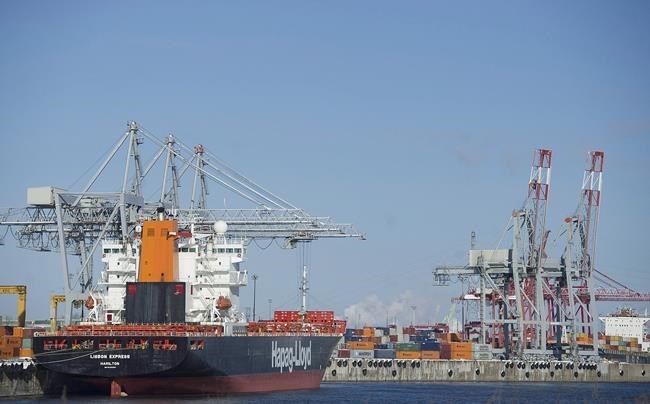MONTREAL — Cargo shipping on the St. Lawrence Seaway remained flat last year, despite COVID-19’s harsh toll on demand for many products shipped along the waterway.
Nearly 38 million tonnes of cargo were shipped last year along the route stretching from the lower St. Lawrence River to the Great Lakes, with record shipments of grain offsetting a decline in liquid bulk, dry bulk and iron ore, the St. Lawrence Seaway Management Corp. said.
In total, cargo shipments were down nearly 1.7 per cent in 2020 compared with 2019.
“It’s been a hugely challenging year,” said Bruce Burrows, president and CEO of the Chamber of Marine Commerce. “We had significant drops in most of the major commodities that we move.”
The data from the St. Lawrence Seaway, the linchpin in a system of commercial waterways that connects the Atlantic Ocean with the Great Lakes, highlights the uneven effects that COVID-19 has had on different areas of the global economy.
Of the types of goods shipped, liquid bulk, which includes petroleum products like jet fuel and gasoline, declined the most, with shipment volume dropping 34.4 per cent to around three million tonnes. The drop reflected a lack of demand for travel amid government restrictions to combat the pandemic.
Similarly, dry bulk and iron ore dropped by 9.4 per cent and 12.4 per cent respectively, year over year, as low demand for automobiles, manufacturing and construction reduced shipments of commodities like iron, cement and stone.
However, the declines in these categories were offset by a 27 per cent increase in grain shipments, which accounted for more than 13 million tonnes of cargo.
Terrence Bowles, president and CEO of the St. Lawrence Seaway Management Corp., said the increase in grain was due to high global demand for food products, coupled with rising yields by Canada’s grain farmers.
“One of the big Canadian success stories is grain,” Bowles said. “Farmers today are highly technical. They’ve been able to improve their yields of grain.”
Burrows said there had been no restrictions on shipping as a result of COVID-19, despite general disruptions to supply chains, such as manufacturing facilities operating at limited capacity.
Looking ahead to the 2021 season, the St. Lawrence Seaway Management Corp. expects shipments to pick up soon as the rollout of the COVID-19 vaccine in the U.S. and Canada lifts demand for air travel, as well as for construction and automobiles.
This report by The Canadian Press was first published Jan. 19, 2021.
Jon Victor, The Canadian Press



